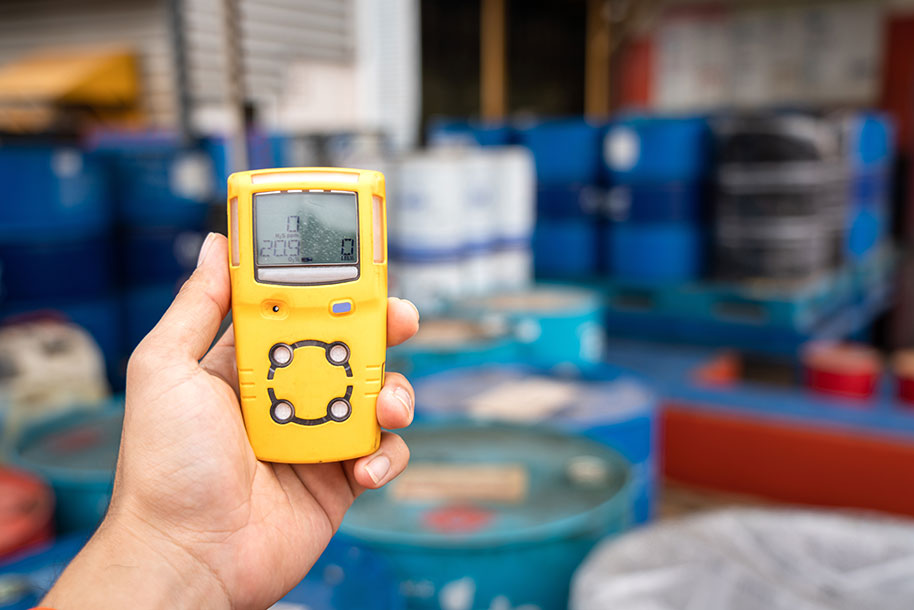
Ammonia, which has toxic, corrosive, and even explosive properties, is widely used in cooling systems, agriculture, cleaning, textile and pharmaceutical industries, petroleum products, explosives making, metallurgy, and many other industrial applications. Since it has a wide usage area, there is a high risk of exposure. This risk increases significantly in closed areas, animal breeding farms, or industrial facilities.

Ammonia can have toxic effects on plants at concentrations above 15-20 parts per million. Ammonia is considered harmful to humans at levels above 25 parts per million, according to the US National Institute for Occupational Safety and Health, and above 50 parts per million, according to the World Health Organization. Although ammonia has a pungent odor, its odor may become unnoticeable in case of long-term exposure. If inhaled, it can cause respiratory system damage, and overexposure can be fatal.
The level of ammonia gas widely used in industrial applications must be constantly monitored to avoid its toxic effects on the environment and human health. For example, it is possible to determine the increase in ammonia in drinking and domestic water due to excessive fertilization, sewage, or animal waste by various chemical methods. Sampling, specimen preparation, and measurement are time-consuming in these methods.
The NANOSIS Platform project at Sabancı University Nanotechnology Research and Application Center - SUNUM, performs studies on nanotechnological sensors that will provide instantaneous, continuous, and faster measurement of ammonia gas at low concentrations using carbon nanotube or graphene-based materials. Upon completing the project with two industrial stakeholders, it aims to develop the ammonia sensor prototypes that the stakeholders need. The studies carried out under the NANOSIS Platform with the vision of "Research focusing on the detection of factors threatening the health and causing contamination and their prevention" aim to contribute to human health, the environment, and the economy.
The NANOSIS Platform
Research Program: Developing Novel Materials and Functional Surfaces for the Identification of Specific Agents at Low Concentrations
Project: Developing carbon nanomaterial-based nanotechnological NH₃ sensor prototypes
 Mustafa Kemal Bayazıt
Mustafa Kemal BayazıtPh.D. in Nanochemistry

